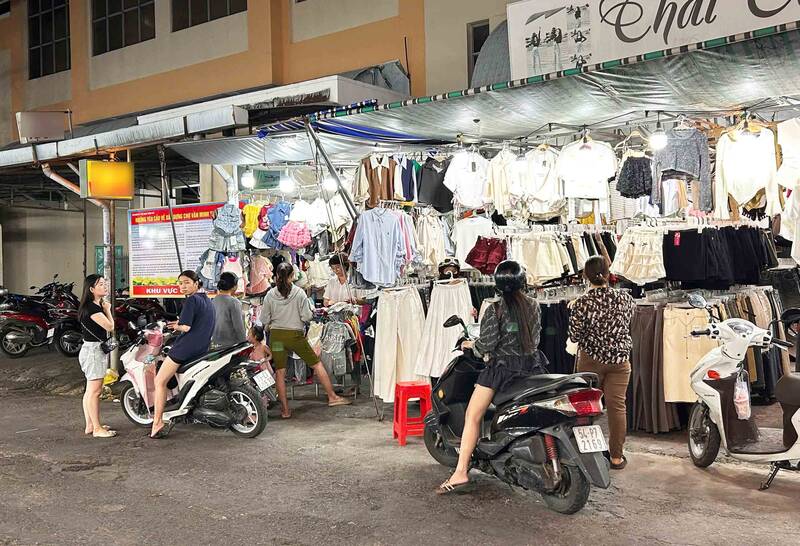Visiting Hanh Thong Tay market after 2 years, Ms. Thuy Thao (living in District 12) could not help but be surprised by the desolation of the once famous market. Previously, the parking lot of this market was often full and had to be parked outside. The market has also expanded 4-5 routes but is now narrowing, and many stalls have been cleaned before 9pm" - Ms. Thao said.
According to Lao Dong, the entrances to the market are airy, and many kiosks also have signs hanging over the stalls. Traders also hung discount signs, buying 2 and giving 1 to customers to attract customers. However, purchasing power is still low.

Customers have decreased by about 60-70% compared to before the COVID-19 pandemic. Partly because the shopping trend on social networking platforms is increasing, partly because customers are frugal in spending" - Mr. Thanh Hung, a trader at Hanh Thong Tay market shared.


According to the Department of Industry and Trade of Ho Chi Minh City, after the COVID-19 pandemic, business activities at traditional markets encountered many difficulties, with purchasing power at markets only reaching about 50-70% compared to before. Therefore, Ho Chi Minh City has comprehensive solutions to upgrade the market model, attract investment and mobilize social resources to participate in development.


The Department of Industry and Trade of Ho Chi Minh City is also choosing to pilot the model of the people's market, the functional division of development orientation according to trade, tourism or specific services, improving service quality, forming investment attraction policies to mobilize society's participation in the development of the market system.
Mr. Nguyen Nguyen Phuong - Deputy Director of the Department of Industry and Trade of Ho Chi Minh City said that in addition to the current state of degraded business infrastructure, issues such as food safety and hygiene, the situation of counterfeit goods, goods of unknown origin, fire prevention and fighting and environmental sanitation at markets have not been thoroughly handled. These shortcomings directly affect business operations, causing consumers to gradually lose confidence in traditional markets.
Traditional markets also face fierce competition from some modern retail chains targeting the same customer segment. These chains do not compete with supermarkets but choose to compete directly with traditional markets.
Faced with the pressure of changing consumer habits and fierce competition, upgrading and innovating traditional markets is an urgent requirement. With the solutions being implemented, Ho Chi Minh City hopes to restore vitality to the market system, preserving the city's unique trading culture.









